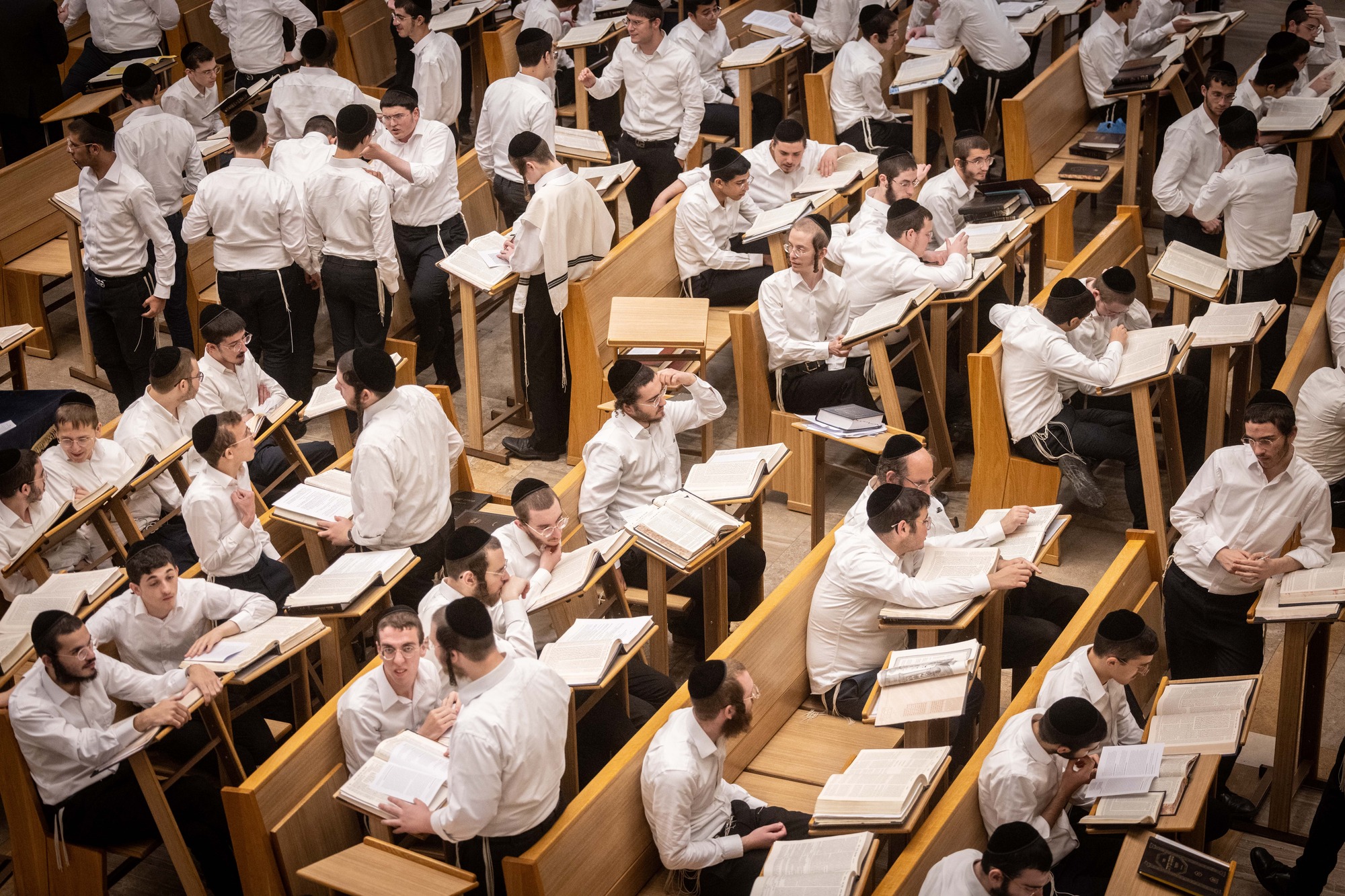Budget Allocation to the Ultra-Orthodox Education System Under 2025 Coalition Agreements
A "nuts and bolts" review of the coalition agreement related to Haredi education in the 2025 State budget.

Photo by: Chaim Goldberg/Flash90
Summary
This document was composed to review the mechanism behind the transfer of coalition funds within the education budget (down to the “nuts and bolts”) in the context of the ultra-Orthodox (Haredi) education system. The review examines all clauses of the coalition agreement related to Haredi education in the 2025 State budget (excluding the section pertaining to support of specialized initiatives for Haredi youth at the “Yad Vashem” institution). The assessment of the aforementioned clauses emphasizes the irregularities in the funding of Haredi education, as reflected in the coalition agreements, in terms of regulation, oversight and Ministry of Education policy.
An examination of the Finance Committee’s approval processes reveals a systematic weakening of this important Committee over the past decade. Some of the issues in question relate directly to the Committee’s work, including instances in which it was presented with partial information and where the transparency of budgetary allocations was low. It can be assumed that this situation was made possible by the professional echelon within the Ministry of Education aligning itself with the preferences of the political leadership, alongside the Budget Department in the Ministry of Finance seeking to define the Committee’s “objective function” to ensure the approval of the budget that had already been agreed upon.
In the 2025 State Budget, funding for the political education networks Maayan HaChinuch HaTorani, Bnei Yosef and Chinuch Atzma’I was cut by hundreds of millions of shekels. As a result, pressure has increased to expand the allocation of coalition funds across several key areas of interest to the Haredi parties. These include: at-risk Haredi youth, seminaries, exempt institutions (i.e., Haredi schools not required to teach core curriculum), and, of course, support for yeshiva students and married kollel students. It should be noted that the authors of this document highlight the fact that the coalition’s room to maneuver—as well as that of the Chair of the Finance Committee and the Minister within the Ministry of Education—appears to have narrowed in this budget due to the increasing number of petitions to the Supreme Court, the presence of professional legal opinions, and the absence of updated regulations. This, in addition to the actions of Opposition Members of Knesset who have played a significant role in improving oversight over coalition funds, some of which may eventually come under judicial review.
The overarching framework governing the debate around coalition funds is anchored in the Attorney General’s Directive 1.1801 (2015), which has been frequently disregarded in previous discussions. This document emphasizes the important role these regulations play, particularly when addressing clauses that raise questions or lack of clarity.
The problems that arise in discussing certain clauses are related to failure to comply with Directive 1.1801, or from the practice of incorporating one-time funds into the basic budget. Alongside these procedural concerns, fundamental ethical questions emerge regarding the relationship between the Haredi sector and the State, the transparent and equitable allocation of public funds, and the appropriation of resources to areas where oversight and regulation by the Ministry of Education are weak.
Below is a table summarizing the main budget transfer clauses involving the allocation of coalition funds to Haredi education, along with their associated legal and oversight challenges:
Summary Table: Coalition Demands vs. Legal and Oversight Challenges
